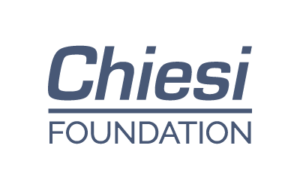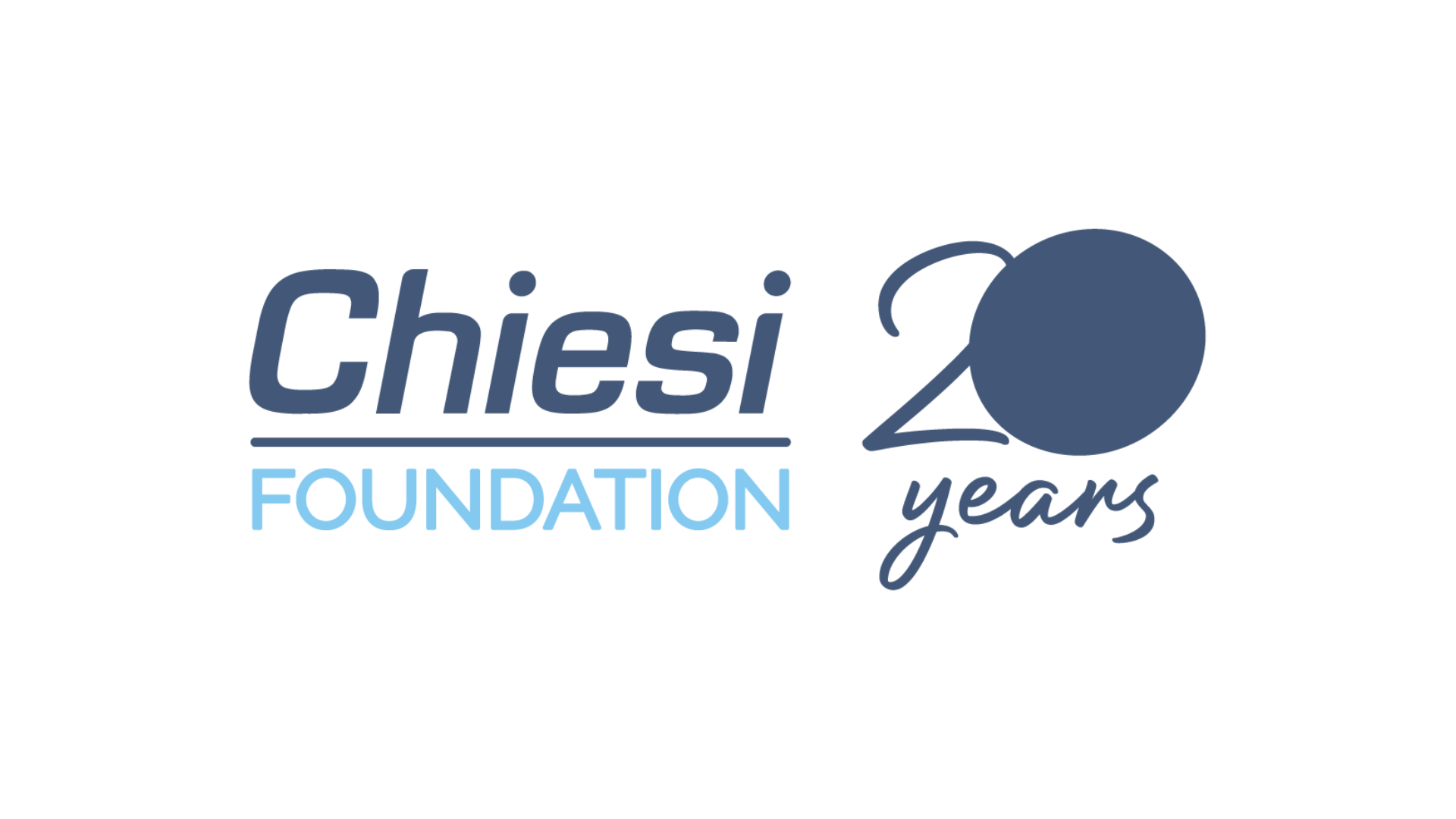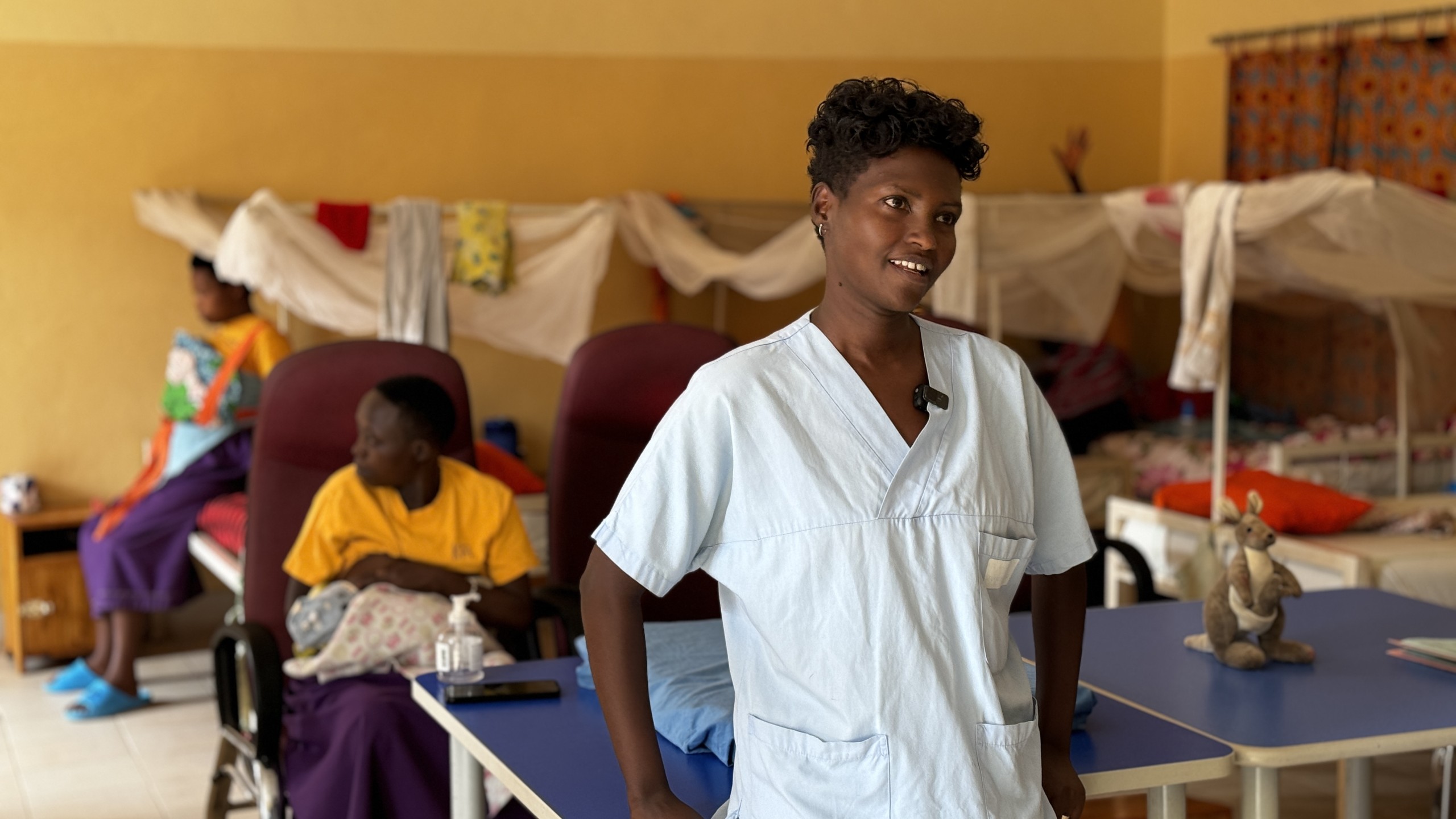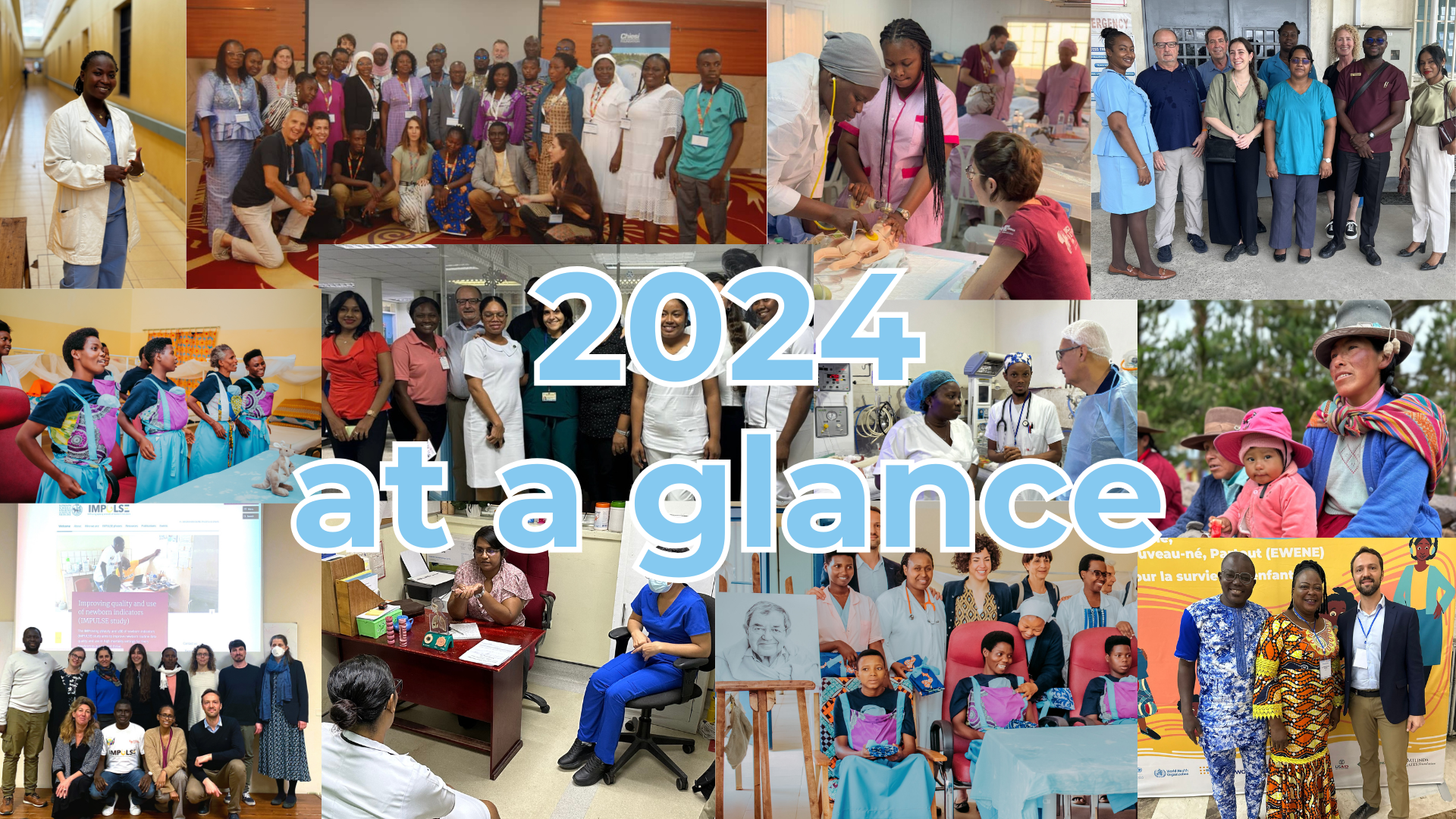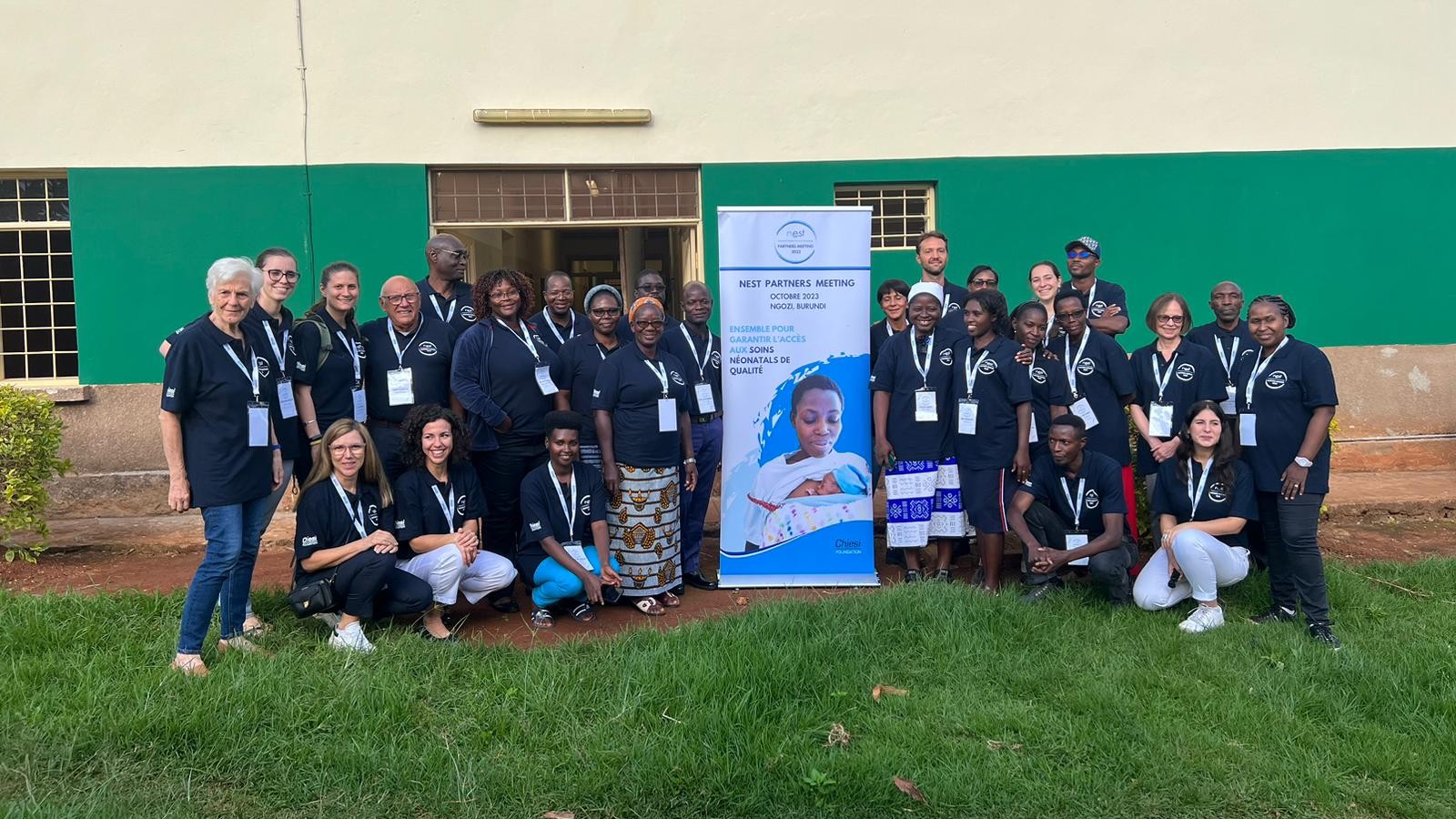by Lorenzo Picicco
Share
The Foundation’s Anniversary
We are happy and proud to celebrate our first 20 years. Founded in Parma on April 14, 2005, as an expression of the Chiesi Group’s social responsibility, the Foundation celebrates two decades of continuous commitment to improving access to quality respiratory and neonatal care for the most vulnerable populations in the Global South.
On this special occasion, we remember Dr. Paolo Chiesi, our founder and first president, who passed away last year. With deep passion and scientific rigor, he promoted the creation of the Foundation, overseeing its development and helping to define its identity.
To mark this 20-year milestone, we reflect on some key moments in our history.
Support for Scientific Research
The Foundation focused almost exclusively on supporting scientific research projects in its first five years, leveraging the Chiesi Group’s global know-how and experience. During this period, the Chiesi Foundation acted as a grant-maker, funding numerous local and international research projects and several scholarships.
Our Mission: A Commitment to Health, the Planet, and the Future
In 2010, the Foundation took a major turn in its philanthropic journey by committing primarily to international cooperation in neonatal and respiratory care. It began operating not just as a financier, but as a true implementing partner, helping to sustainably develop clinical and scientific skills to ensure the autonomy of local communities.
Our commitment to promoting the right to health for all is reflected in our mission:
“We are committed to improving the health and alleviating the suffering of patients affected by respiratory diseases and neonatal pathologies, improving the quality of life for them and their families.”
We envision a future in which all newborns, their mothers, families, and all people suffering from chronic respiratory diseases in the Global South have equitable access to quality care. Every decision the Foundation makes is guided by its core values: a sense of responsibility toward society and the environment, the dissemination of scientific knowledge, and equity through the fight against suffering.
Our Contribution to the Sustainable Development Goals
The 17 Sustainable Development Goals (SDGs) of the United Nations 2030 Agenda require urgent and collaborative action from all member states to tackle global challenges and achieve specific targets.
The Foundation specifically supports two of these goals:
- Goal 3: Ensure healthy lives and promote well-being for all at all ages.
- Goal 17: Strengthen the means of implementation and revitalize the Global Partnership for Sustainable Development.
In this way, the Chiesi Foundation helps guarantee the right to health for all ages and fosters the creation of networks and partnerships with local and international institutions, Ministries of Health, universities, NGOs, hospitals, and healthcare workers.
Why the Global South?
Today, the Chiesi Foundation is active in 13 countries of the Global South, where access to quality healthcare remains a major challenge for local populations.
Despite progress in recent decades, neonatal mortality remains high in many areas. In 2023, Sub-Saharan Africa reported an average neonatal mortality rate of 26 deaths per 1,000 live births. Most deaths occur in the first month of life and could be prevented with adequate obstetric and neonatal care. Additionally, the predominance of English in global health creates a deep linguistic divide that penalizes French-speaking countries. The Foundation has therefore chosen to focus its activities in these regions, where access to resources and training is more limited.
Chronic respiratory diseases are also an often-overlooked emergency. Conditions such as asthma and COPD (Chronic Obstructive Pulmonary Disease) cause millions of deaths every year, most of them in countries of the Global South. Through targeted intervention programs, the Foundation seeks and implements solutions to reverse these trends and strengthen the diagnostic and management capabilities of local health systems.
First Partnerships: Burkina Faso and Benin
In 2010, the Foundation launched its first collaboration in Burkina Faso with the Hôpital Saint Camille de Ouagadougou (HOSCO), focused on training healthcare staff and caring for premature and sick newborns. In 2020, the creation of a Perinatology Network in the Central Region marked a major step in facilitating dialogue among various stakeholders and developing shared training programs, aimed at easing the transfer of critical cases from birth centers to major hospitals in the capital.
In 2011, the project with Hôpital Saint Jean de Dieu de Tanguiéta (HSJD) in Benin began, aimed at reducing neonatal mortality. With the Foundation’s support, a new neonatal ward equipped with appropriate medical equipment was inaugurated in 2012. Special attention was given to introducing the Kangaroo Care (KC) unit, designed to improve long-term neonatal health and monitored through home follow-up visits.
The Birth of the NEST and GASP Models
Starting in 2014, the Chiesi Foundation began structuring its international cooperation efforts around two innovative models:
- The NEST Model – Neonatal Essential Survival Technology, designed to improve access to neonatal care in resource-limited countries through clinical training, infrastructure support, and the dissemination of context-specific guidelines.
- The GASP Model – Global Access to Spirometry Project, aimed at improving the diagnosis and management of patients with chronic respiratory diseases, such as asthma and COPD, through training programs, creation of spirometry labs, and dissemination of standard protocols like the GOLD guidelines.
New Collaborations: Burundi and Guyana
In 2014, GASP enabled the creation of the first spirometry lab at Georgetown Public Hospital Corporation (GPHC) in Guyana. Since then, the hospital has been able to conduct checkups and diagnose chronic respiratory diseases. To date, the spirometry department has conducted over 30,000 visits.
At the same time, a collaboration began with Amahoro Pro-Africa Onlus to support the opening of the neonatal unit at Ngozi Hospital in Burundi, which occurred the following year. In this region, the Foundation helped establish the Kangaroo Care area to strengthen training and services for premature babies. The project expanded to the provincial level, making Ngozi Hospital the national reference center for KC.
Expansion of NEST and GASP
In 2018, the NEST Model was implemented in Togo at Hôpital d’Enfants Yendube in Dapaong, in response to a request for support to launch the newly built neonatal unit. The Foundation supported the hospital by purchasing essential technologies, enhancing the KC area, and training staff. Thanks to a new multimedia room and collaboration with neonatologist Dr. Lucia Tubaldi of the Italian Society of Neonatology, remote training became possible in 2022.
That same year, GASP reached Peru, where Policlinico Santa Rita in Cusco province became a center for diagnosing and managing chronic illnesses like asthma and COPD. The collaboration was enhanced by two strategic partners: SEPAR Solidaria of the Spanish Society of Pulmonology and the Spanish branch of the Chiesi Group, enabling training programs, awareness campaigns, and the creation of a healthcare network across the province.
Innovation and New Governance
In 2021, the Chiesi Foundation began a strategic review process to define new goals and action lines for the future. A key part of this initiative was the appointment of two strategic figures: Massimo Salvadori and Maria Paola Chiesi, as coordinator and president, respectively.
That same year, the scientific research project IMPULSE – IMProving qUaLity and uSE of newborn indicators – was launched in collaboration with high-profile partners including the London School of Hygiene and Tropical Medicine (LSHTM), the WHO Collaborating Center in Trieste (Burlo Garofolo Pediatric Institute), CUAMM – Doctors with Africa, UNICEF, and WHO. The initiative aims to improve the quality and analysis of data and KPIs collected in neonatal units in resource-limited countries to evaluate clinical improvement interventions.
New Horizons in Asia
In 2023, the GASP Model was launched in Nepal through a pioneering project to prevent respiratory diseases among brick kiln workers, a sector highly exposed to silica and pollution. In collaboration with Johns Hopkins University, a free spirometry screening program was launched in Bhaktapur to identify conditions such as silicosis, asthma, and COPD. The project included training local staff, distributing educational materials, and involving the brick kiln owners’ association, which committed to improving workers’ health conditions.
Building Networks for Change
Partnership is at the core of every Foundation’s initiative. No complex challenge can be faced alone: only through collaboration among local and international actors, can we achieve sustainable and long-lasting change.
In 2022, the Chiesi Foundation supported the creation of the African Neonatal Association (ANA), a voluntary, non-profit professional organization dedicated to improving neonatal care in Africa. ANA fosters collaboration among neonatologists on the continent, promotes continuous training, and contributes to more effective, context-based health policies.
In 2023, a new alliance was launched with the Council of International Neonatal Nurses (COINN), aiming to strengthen local nursing skills in neonatal units across the Global South. Often undervalued, the nursing approach is key to ensuring quality care, especially in low-resource settings.
In 2024, the NEST Model was also implemented in Ivory Coast at the Hôpital Régional d’Abobo, expanding the intervention to a fifth French-speaking African country.
Also in 2024, a collaboration began with the Pan African Thoracic Society (PATS) to promote respiratory research by African researchers across the continent. The goal is to bridge the gap between clinical needs and therapeutic solutions in a region where chronic respiratory diseases are still largely neglected.
During the year, the Foundation established a Technical Advisory Group for the GASP program, composed of international experts to guide the model’s evolution and ensure its adaptability to current and future contexts.
Where We Are Today
Exactly 20 years after its founding, the Chiesi Foundation is active with international cooperation and scientific research projects in 13 Global South countries and continues to expand and strengthen its initiatives.
In the first months of 2025, we supported the expansion of the NEST Model in Benin through a new partnership at the Centre Hospitalier Universitaire de la Mère et de l’Enfant Lagune in Cotonou. Simultaneously, a second Technical Advisory Group was established, dedicated to evolving and adapting the NEST program in new countries.
Looking to the Future, After 20 Years
Over the past two decades, the Chiesi Foundation has built a path based on continuous support, ongoing training, and responsibility toward future generations, working alongside local communities, healthcare professionals, and institutions to improve access to quality care in the Global South.
Today, we reaffirm our commitment to promoting global health as a fundamental right for all, through concrete actions, knowledge sharing, and lasting partnerships. With the collaboration and support of those who share our values, we will continue to implement targeted and effective solutions to make a positive impact in the most vulnerable contexts and help create a healthier, fairer, and more sustainable future for everyone.
